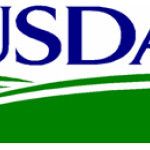- Отрасли: Government
- Number of terms: 41534
- Number of blossaries: 0
- Company Profile:
Defined by law as a vitamin, mineral, herb, botanical, an amino acid, a dietary substance added to supplement the diet to increase the total dietary intake, or concentrate, metabolite, constituent, extract or combination of any ingredients described above. Supplements cannot be represented for use as a conventional food or sole item of a meal or the diet; and they must be labeled as dietary supplements. Regulatory authority rests with the Food and Drug Administration. There are concerns about the degree of regulation by FDA for safety and claims made for the products by manufacturers.
Industry:Agriculture
A synthetic estrogen hormone. DES was used widely in the United States as a growth promoter in cattle and sheep and as a treatment for estrogen-deficiency disorders in veterinary medicine, and for postcoital contraception. However, because of its carcinogenic properties and other adverse effects, the Food and Drug Administration has revoked all use of it in food-producing animals.
Industry:Agriculture
Basing the valuation of farmland for property tax purposes on its use for farming rather than on its "highest and best" use, such as potential development. Types of differential assessment include preferential assessment, deferred taxation, and restrictive agreement.
Industry:Agriculture
Any of a group of toxic chlorinated compounds known chemically as dibenzo-p-dioxins (or the most toxic of these compounds, 2,3,7,8 tetrachloro dibenzo-p-dioxin). They are produced inadvertently as a by-product of chemical production or combustion and are widespread pollutants in the environment.
Industry:Agriculture
Any arrangement where the producer or his/her representative is selling his products directly to the end user. Typical forms of direct marketing are farmers’ markets and roadside stands. Other examples include subscription farming and regular delivery of fresh farm produce by farmers to homes or restaurants.
Industry:Agriculture
Payments (usually in cash but sometimes in commodity certificates) made directly to producers in conjunction with participation in commodity support or other programs. Under the FAIR Act of 1996, participating producers receive production flexibility contract payments, which replace deficiency payments. Also, producers receive direct payments under conservation reserve contracts.
Industry:Agriculture
Direct federal payments provided to crop producers when either planting is prevented or crop yields are abnormally low because of adverse weather and related conditions. The Federal Crop Insurance Act of 1980 greatly expanded crop insurance coverage in an attempt to permanently replace disaster payments with government-subsidized insurance. However, between 1988 and 1994, ad-hoc disaster legislation was enacted in each year that provided a total of nearly $10 billion in direct disaster payments to farmers. These large payments prompted the enactment of the Federal Crop Insurance Reform Act of 1994, which included provisions to broaden the federal subsidy of the federal crop insurance program, in an effort to increase farmer participation in the program and lessen the pressure for ad-hoc disaster payments. The 1994 Act also created a permanent noninsured assistance program (NAP) that makes payments to farmers who grow a crop that is ineligible for crop insurance. NAP pays eligible farmers 60% of the market price of the crop on losses in excess of 50%, but only when the farmer’s area experiences a minimum crop loss of 35%.
Industry:Agriculture
In water resources, the term refers to the flow of surface water in a stream or canal or the outflow of ground water from a flowing artisan well, ditch, or spring. In environmental protection, the term is used synonymously with effluent or emission as a term of point source pollution release.
Industry:Agriculture
Plants or animals that harbor and carry disease organisms which may attack crops or livestock.
Industry:Agriculture
The General Council of the WTO, composed of representatives of all member countries, convenes as the Dispute Settlement Body to administer rules and procedures agreed to in various agreements. The DSB has authority to establish panels, adopt panel and Appellate Body reports, maintain surveillance of implementation of rulings and recommendations, and authorize suspension of concessions or other obligations under the various agreements.
Industry:Agriculture
